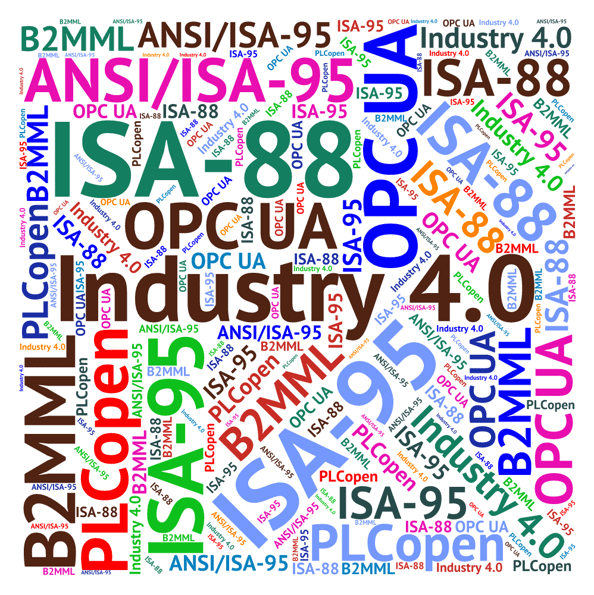This post was written by Bill Lydon, chief editor of InTech magazine.
The automation industry has been slow to embrace interoperability standards; this is changing with a new wave of technologies that provides a great deal of value. ISA has been a leader in creating valuable standards, such as ISA-88 and ISA95, that have been adopted worldwide and are even more effective with new interoperability standards.

Standards take a long time to be developed and accepted. Consider standardization of screw threads. Screw threads for fasteners were originally cut by hand with no standards; they depended on the eye and skill of the craftsman. Later, they were made with machines for consistency. Without thread standardization, fastener interchangeability was problematic, and it took years for standards to evolve. A more recent example is the birth of ISA-88 and the years it took for automation vendors to integrate it as a standard automation system feature—opposed to each having a unique solution.
Plants have multiple automation and business systems that do not communicate directly, resulting in complicated gateways and custom software that are expensive to use and maintain due to the lack of data interchange standards. This has resulted in automation systems with throughput bottlenecks, complicated configuration control, and high software maintenance costs.
In contrast, the computer industry has benefited from being standards driven for many years. It took some time for the industrial automation industry to adopt basic computer industry standards. There is good reason to wait for new technologies to become stable before using them, but waiting too long puts a burden on users in two ways. First, users pay a higher price when vendors do not adopt mainstream technologies, and second, users do not get the advantage of new efficiencies.
New data interchange standards enable the adoption of high-powered, low-cost commercial-off-the-shelf (COTS) technology that the established computer industry uses to improve operations and efficiency. This is most evident in human-machine interfaces that adopted HTML5 for portability from desktop to mobile devices.
Modernizing manufacturing based on standards, including leveraging Internet of Things concepts and technology, is being implemented for manufacturing with initiatives such as Industry 4.0, with the common goal of creating more responsiveness and efficiency. This includes tighter linkages between design, automation, manufacturing systems, and customers. Common themes in all these initiatives include using unmodified COTS technology and standards. Open interoperability is essential for these systems to be economical and practical.
New automation industry standards are enablers for taking advantage of new technology. The OPC UA standard provides an efficient and secure infrastructure for data interchange from sensor to business enterprise systems using computer industry standard Web services for a single programming paradigm in a scalable architecture. It can be implemented as a range of devices—from embedded to enterprise. Oil and gas, machine tool, online analyzers, and other applications use OPC UA to work on a common open data interchange mechanism. B2MML is an XML implementation of the ANSI/ISA95, Enterprise-Control System Integration standard using the World Wide Web Consortium’s XML schema language (XSD). It is also being incorporated into OPC UA. PLCopen and the OPC Foundation joined forces in 2008 to create platform- and manufacturer-independent OPC UA function blocks to standardize and simplify data exchange between controllers, manufacturing execution systems, and business information systems, increasing the efficiency of manufacturing.
Many standards in the past were islands unto themselves, but increasingly there is a spirit of cooperation that I trust illustrates a more mature approach that will benefit the automation industry.
 About the Author
About the Author
Bill Lydon is chief editor of InTech magazine. Lydon has been active in manufacturing automation for more than 25 years. He started his career as a designer of computer-based machine tool controls; in other positions, he applied programmable logic controllers and process control technology. In addition to experience at various large companies, he co-founded and was president of a venture-capital-funded industrial automation software company. Lydon believes the success factors in manufacturing are changing, making it imperative to apply automation as a strategic tool to compete.
Connect with Bill:![]()
![]()
![]()
A version of this article also was published at InTech magazine.




